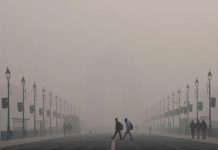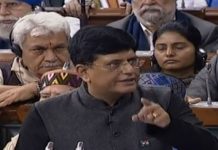
A few years after farmers ended their massive protest after the government scrapped the proposed farm laws in 2021 and consented to discuss other demands, they are back on the roads demanding guaranteed prices for their crops. The farmers’ protest has brought back memories of the chaos which prevailed in the capital during their first protest that began in 2020 against the move to introduce controversial agricultural reforms and was witness to many farmers dying from heat, cold and Covid at the Delhi borders. The peaceful, non-violent protests had become a watershed farm moment post-Independence.
The farm unions are now exerting pressure on the Centre for the enactment of a law to guarantee a minimum support price (MSP) for all crops of at least 50 per cent above the weighted average cost of production. The protesters are also seeking the implementation of the Swaminathan Commission’s recommendations, pensions of Rs 10,000 for farmers and farm labourers, farm debt waiver, withdrawal of police cases and justice for victims of the Lakhimpur Kheri violence in 2021.
The genesis of the problem lies in that the government sets the MSP of over 20 crops on the recommendations of the Commission for Agricultural Costs and Prices twice a year but procurement agencies buy only rice and wheat at the minimum support price level, benefiting around just 7% of farmers who raise those crops. The state agencies buy only the two staple food grains at MSP to build reserves to run the world’s biggest food welfare programme that entitles 800 million Indians to free rice and wheat.
The right to protest to challenge the government to respond is a constitutional right of the people that stems directly from various provisions of Article 19 of the Constitution, which defines the Right to Freedom of Speech and Expression. However, what has irked the farmers is the use of force and the setting of concrete barricades to block their entry to Delhi where they were heading to protest. The Punjab and Haryana High Court has pointed out that, as citizens of India, “farmers have the right to move”. The bench, consisting of Acting Chief Justice GS Sandhawalia and Justice Lapita Banerji, said this while hearing a PIL challenging the Haryana Government’s decision to seal its borders to prevent protesters from entering the state and moving towards the national capital. Farmers form the most influential voting bloc in India and the government would not like to rub them the wrong way just weeks before India holds the general elections. The government has so far held three new rounds of talks with the farm leaders. However, the farmers called the talks “delaying tactics”. Farming is indeed linked to production risks, more so given the vagaries of climate change. What farmers require is assured minimum income support so that they are not left to the mercy of market forces.












